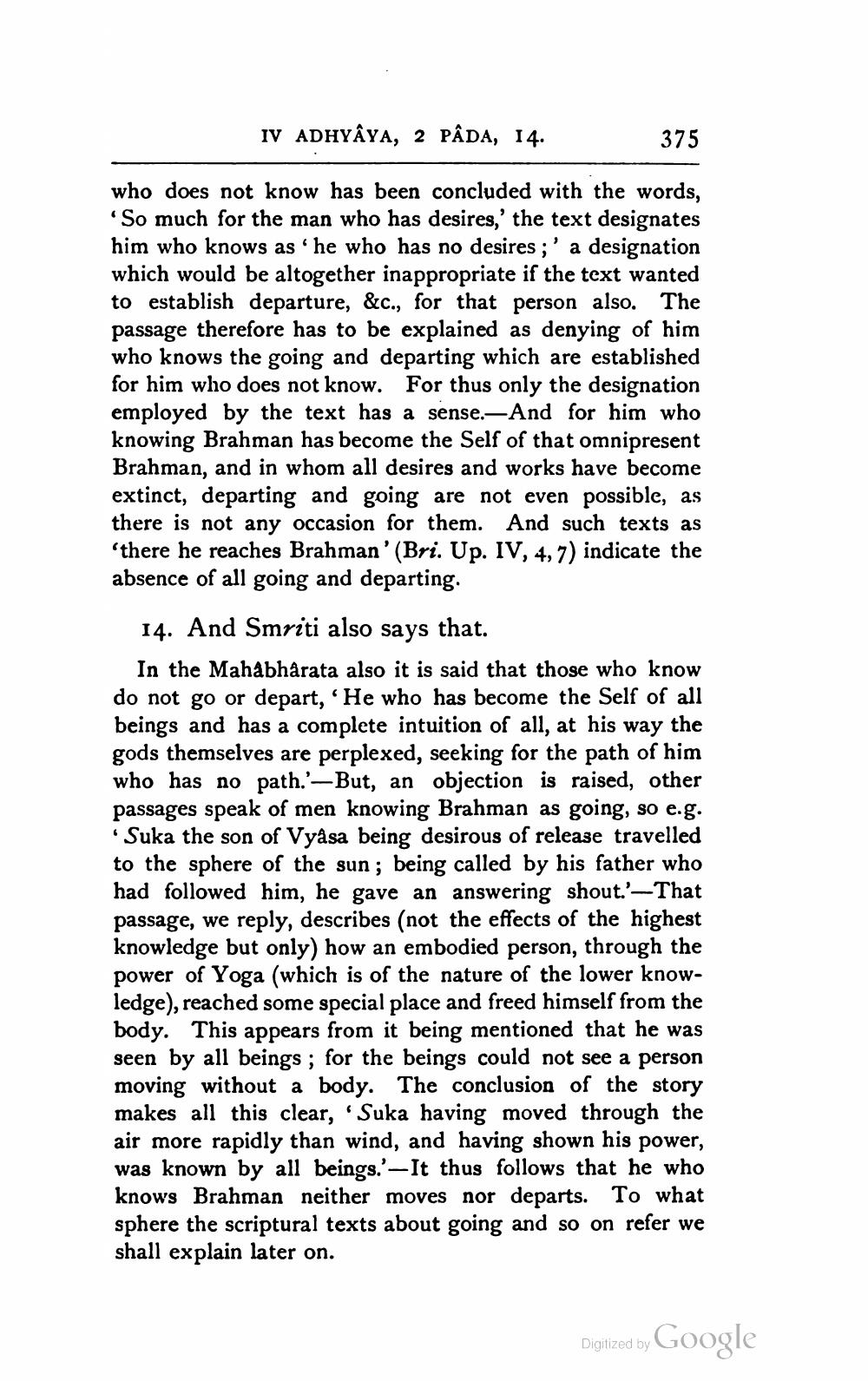________________
IV ADHYAYA, 2 PÂDA, 14.
375
who does not know has been concluded with the words,
So much for the man who has desires,' the text designates him who knows as 'he who has no desires ;' a designation which would be altogether inappropriate if the text wanted to establish departure, &c., for that person also. The passage therefore has to be explained as denying of him who knows the going and departing which are established for him who does not know. For thus only the designation employed by the text has a sense.—And for him who knowing Brahman has become the Self of that omnipresent Brahman, and in whom all desires and works have become extinct, departing and going are not even possible, as there is not any occasion for them. And such texts as 'there he reaches Brahman'(Bri. Up. IV, 4, 7) indicate the absence of all going and departing.
14. And Smriti also says that.
In the Mahabharata also it is said that those who know do not go or depart, 'He who has become the Self of all beings and has a complete intuition of all, at his way the gods themselves are perplexed, seeking for the path of him who has no path.'-But, an objection is raised, other passages speak of men knowing Brahman as going, so e.g.
Suka the son of Vyasa being desirous of release travelled to the sphere of the sun; being called by his father who had followed him, he gave an answering shout.'—That passage, we reply, describes (not the effects of the highest knowledge but only) how an embodied person, through the power of Yoga (which is of the nature of the lower knowledge), reached some special place and freed himself from the body. This appears from it being mentioned that he was seen by all beings; for the beings could not see a person moving without a body. The conclusion of the story makes all this clear, 'Suka having moved through the air more rapidly than wind, and having shown his power, was known by all beings.' - It thus follows that he who knows Brahman neither moves nor departs. To what sphere the scriptural texts about going and so on refer we shall explain later on.
Digitized by
Digitized by Google




